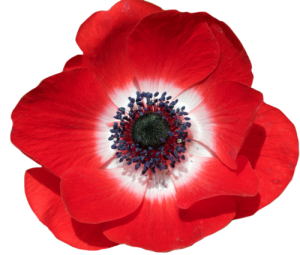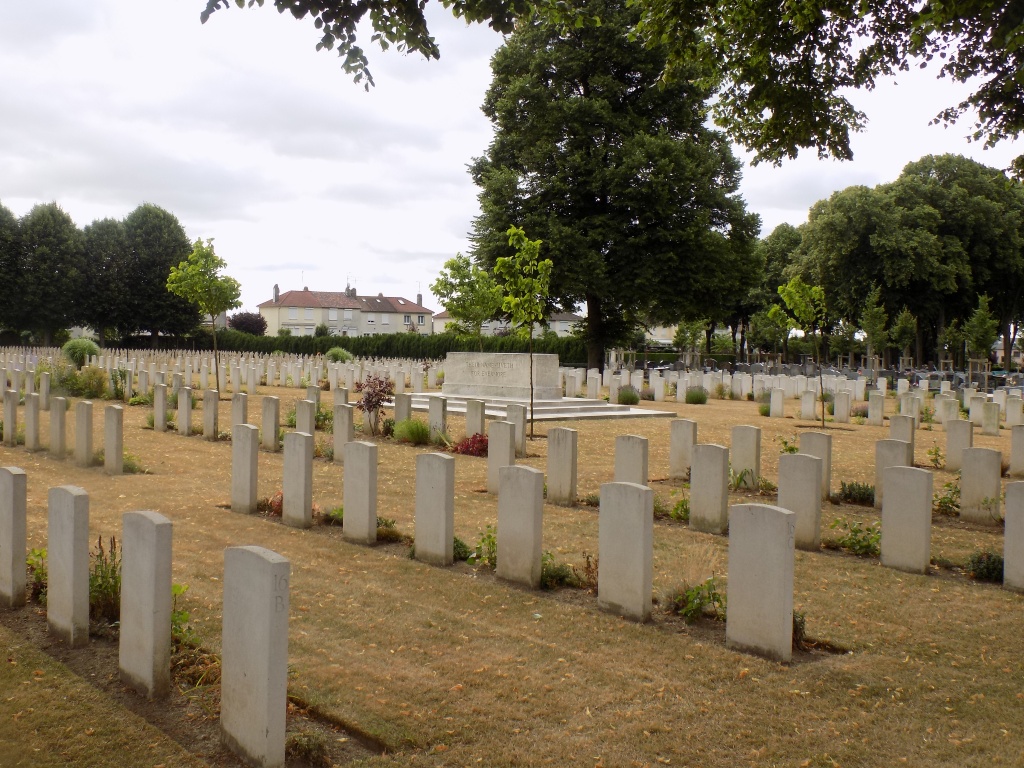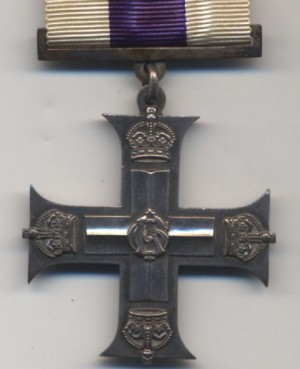Personal Details
Walter Hugh Godsal was born in Sturminster Marshall, Dorset on 31st March 1883 (baptised 1st May 1883), the third son of Major Philip Thomas and Mrs Ellen Henrietta Godsal of Iscoyd Park, Whitchurch, Shropshire.
After attending Eton College, he left in 1900 to enrol at the Royal Military Academy, Sandhurst, from where he was commissioned into the Durham Light Infantry on 18th January 1902.
Walter had a glittering military career, being awarded the Military Cross in June 1915, mentioned in dispatches in June 1915, January 1916, December 1917 and May 1918 and awarded the Distinguished Service Order posthumously in June 1918.
Walter’s brother, Commander Alfred Edmund Godsal, also lost his life in the Great War.
Walter is also commemorated in the Durham Light Infantry Book of Remembrance in Durham Cathedral, the Hawarden Flintshire Roll of Honour and the Eton College WW1 Memorial.
Military Details
Regiment : 2nd Battalion Durham Light Infantry
Rank : Major (acting Lieutenant Colonel)
Service Number :
Died of wounds; France 26 March 1918 Aged 34
For the medal citations, see the link to Walter's war diaries under Further Information.
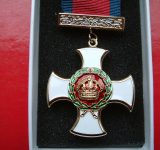
The Distinguished Service Order (DSO) is a military decoration of the United Kingdom, and formerly of other parts of the Commonwealth of Nations, awarded for meritorious or distinguished service by officers of the armed forces during wartime, typically in actual combat.
Instituted on 6 September 1886 by Queen Victoria in a Royal Warrant published in The London Gazette on 9 November, the first DSOs awarded were dated 25 November 1886. It is typically awarded to officers ranked major (or its equivalent) or higher, but the honour has sometimes been awarded to especially valorous junior officers. During the First World War, 8,981 DSOs were awarded, each award being announced in The London Gazette.
The order was established for rewarding individual instances of meritorious or distinguished service in war. It was a military order, until recently for officers only, and normally given for service under fire or under conditions equivalent to service in actual combat with the enemy, although it was awarded between 1914 and 1916 under circumstances which could not be regarded as under fire (often to staff officers, which caused resentment among front-line officers). After 1 January 1917, commanders in the field were instructed to recommend this award only for those serving under fire. Prior to 1943, the order could be given only to someone mentioned in despatches. The order is generally given to officers in command, above the rank of captain. A number of more junior officers were awarded the DSO, and this was often regarded as an acknowledgement that the officer had only just missed out on the award of the Victoria Cross. In 1942, the award of the DSO was extended to officers of the Merchant Navy who had performed acts of gallantry while under enemy attack.
The Military Cross is the third-level military decoration awarded to officers and (since 1993) other ranks of the British Armed Forces, and used to be awarded to officers of other Commonwealth countries.
The Military Cross is granted in recognition of "an act or acts of exemplary gallantry during active operations against the enemy on land to all members, of any rank in Our Armed Forces". In 1979, the Queen approved a proposal that a number of awards, including the Military Cross, could be awarded posthumously.
Click on the tag below to see details of each recipient.
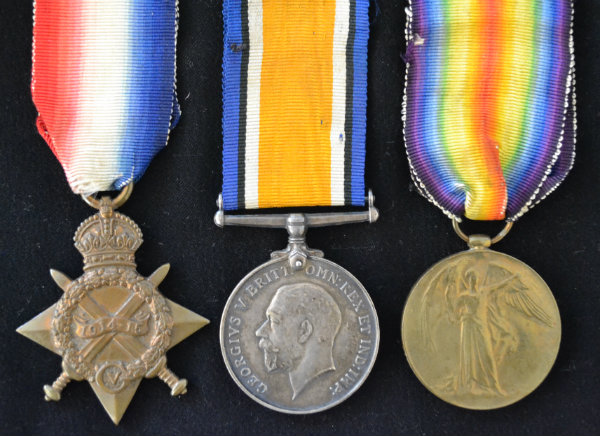
The 1914 Star (also known as 'Pip') was authorised under Special Army Order no. 350 in November 1917 and by an Admiralty Fleet Order in 1918, for award to officers and men of the British and Indian Expeditionary Forces who served in France or Belgium between 5 August and midnight of 22–23 November 1914. The former date is the day after Britain's declaration of war against the Central Powers, and the closing date marks the end of the First Battle of Ypres.
The 1914–15 Star (also known as 'Pip') was instituted in December 1918 and was awarded to officers and men of British and Imperial forces who served against the Central European Powers in any theatre of the Great War between 5 August 1914 and 31 December 1915. The period of eligibility was prior to the introduction of the Military Service Act 1916, which instituted conscription in Britain.
The British War Medal (also known as 'Squeak') was a silver or bronze medal awarded to officers and men of the British and Imperial Forces who either entered a theatre of war or entered service overseas between 5th August 1914 and 11th November 1918 inclusive. This was later extended to services in Russia, Siberia and some other areas in 1919 and 1920. Approximately 6.5 million British War Medals were issued. Approximately 6.4 million of these were the silver versions of this medal. Around 110,000 of a bronze version were issued mainly to Chinese, Maltese and Indian Labour Corps. The front (obv or obverse) of the medal depicts the head of George V. The recipient's service number, rank, name and unit was impressed on the rim.
The Allied Victory Medal (also known as 'Wilfred') was issued by each of the allies. It was decided that each of the allies should each issue their own bronze victory medal with a similar design, similar equivalent wording and identical ribbon. The British medal was designed by W. McMillan. The front depicts a winged classical figure representing victory. Approximately 5.7 million victory medals were issued. Interestingly, eligibility for this medal was more restrictive and not everyone who received the British War Medal ('Squeak') also received the Victory Medal ('Wilfred'). However, in general, all recipients of 'Wilfred' also received 'Squeak' and all recipients of The 1914 Star or The 1914/1915 Star (also known as 'Pip') also received both 'Squeak' and 'Wilfred'. The recipient's service number, rank, name and unit was impressed on the rim.
Further Information
Taken from Forces War Records
More information about Walter Hugh Godsal is available from his war diaries at Cymru 1914, from Sturminster Marshall Village History Archive and from Flintshire War Memorials.
If you can provide any further information on Walter Hugh Godsal please get in touch by leaving a comment below, using our Contact Form or by calling in to Whitchurch Heritage Centre.
Information provided by Whitchurch Museum and Archives

